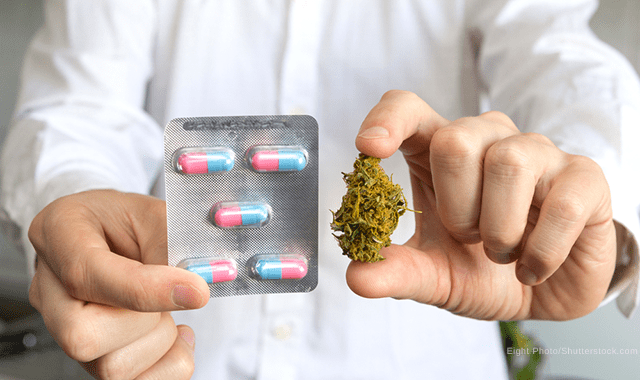English
As the landscape of mental health treatment continues to evolve, individuals seeking relief from depression often explore various avenues, including the use of cannabis. This exploration raises important questions about how cannabis interacts with different antidepressants. In this comprehensive article, we embark on a journey to understand the intricate interplay between cannabis and various antidepressant medications, exploring the potential benefits, risks, and considerations.
The Rising Prevalence of Depression: A Global Challenge
Depression is a global challenge, affecting millions of individuals worldwide. While conventional antidepressant medications remain a primary treatment option, some individuals are turning to cannabis in search of alternative or complementary relief.
1. The Complex Mechanisms of Cannabis:
Cannabis contains a multitude of compounds, with delta-9-tetrahydrocannabinol (THC) and cannabidiol (CBD) being the most well-known. These compounds interact with the endocannabinoid system, a complex network of receptors in the brain and body, influencing mood, pain perception, and more.
2. Potential Benefits of Cannabis for Depression:
Some individuals report that cannabis provides relief from depressive symptoms, such as improved mood, reduced anxiety, and enhanced relaxation. These effects are attributed to the interaction between cannabinoids and the endocannabinoid system.
3. Antidepressant Medications:
Antidepressant medications, such as selective serotonin reuptake inhibitors (SSRIs) and serotonin-norepinephrine reuptake inhibitors (SNRIs), work by increasing the availability of certain neurotransmitters, primarily serotonin and norepinephrine, in the brain. They are considered standard treatment for depression.
4. The Interplay Between Cannabis and Antidepressants:
Navigating the interplay between cannabis and antidepressant medications is akin to traversing a intricate maze. The potential for interactions demands meticulous attention, with nuances depending on the specific medication, individual physiology, and dosages involved. These interactions may influence the metabolism and blood levels of antidepressants, potentially heightening side effects or adverse reactions. As we delve deeper into this labyrinth, remember that a nuanced understanding is paramount for those seeking relief from depression while considering cannabis as part of their treatment regimen. Communication with healthcare providers remains the beacon guiding the way to informed decisions in this complex landscape.
5. Potential Risks and Considerations:
Interactions between cannabis and antidepressants can vary depending on the specific medication, the individual’s unique physiology, and the dosage of both cannabis and antidepressant. Possible risks include increased side effects or adverse reactions.
6. Importance of Open Communication:
Individuals seeking relief from depression with the help of cannabis should engage in open communication with their healthcare providers. Disclosing cannabis use, including frequency and dosage, is vital for assessing potential risks and ensuring informed treatment decisions.
7. Personalized Approaches:
The interaction between cannabis and antidepressants is not one-size-fits-all. Personalized approaches, taking into account an individual’s medical history, genetics, and medication regimen, are essential for making informed choices.
8. Ongoing research on the interaction between cannabis and antidepressants :
The interplay between cannabis and antidepressants is an area of ongoing research. Researchers aim to provide a clearer understanding of how different antidepressant medications may interact with cannabis and whether these interactions pose significant risks or offer potential therapeutic benefits.
Conclusion: A Complex Interplay of Cannabis and Antidepressants Requiring Caution and Care
In conclusion, the interaction between cannabis and different antidepressants is a complex and evolving field. While some individuals report beneficial effects, potential drug-drug interactions and varying individual responses necessitate caution. Open communication with healthcare providers and a personalized approach are crucial for individuals seeking relief from depression while considering cannabis as part of their treatment plan.
As the science surrounding this interplay continues to advance, individuals facing the challenges of depression can look forward to more precise guidance and treatment options. It is essential to stay informed and work closely with healthcare professionals to make well-informed decisions in managing depressive symptoms while considering cannabis as a potential part of the solution.
Published by Sakul
01/10/2023choose and buy cannabis seeds from our offer
our pleasure


























